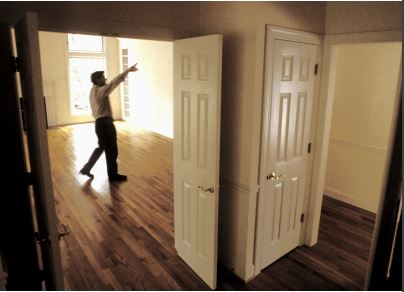Preparing to rent a home:
So, you’ve graduated, or you’re moving from your parent’s place for the first time. Here’s what you need to get in shape before you go apartment hunting:
-
Your credit score(s).
Use a free credit company to check your credit score. If it’s in the poor range, these sites often have tips to help you get it back up. Usually, this means paying off some of that credit card debt and setting up auto-payments so you’re never late on that monthly student loan payment.
-
Your budget.
Typical rental criteria requires that you earn 3x the rent. They normally use your pre-tax income, but it’s always smart to look at your income after taxes and use that as a guideline for what you can really afford. Just because a landlord will rent to you, doesn’t mean you should spend the maximum on rent.
Check to see if you qualify for any kind of government assistance, or for housing set aside as ‘low-income housing’.
Another option is a co-signer. Ask someone you know who trusts you to pay the rent but might have qualifications that make them more trustworthy to the landlord.
-
Your Expectations.
Use your budget to determine what kind of space you really need. Is a third of your income going to get you a one-bedroom, or a studio? What if you get roommates to go in on a house?
Cast a wide net the first time you look at rentals to get an idea of the market & availability. Housing search engines like Craigslist or Zillow are good places to start, but there are also dozens of other places to look too: National rental websites to aid your next apartment hunt.
-
Your timing.
There is a best time to look at the market.
Do a ‘practice search’ a month before you’re ready, to get an idea of the timing of the market. For instance, if you want to move in September 1, begin watching the rental websites around June 20, and observe thru July 10, to see what comes on as available for August 1, and see how fast it gets rented. Then, start your real search about July 20, and know that if you haven’t secured a place by about the 5th of August, the selection will quickly be diminishing.
There may be some good deals that pop up at the last minute (in the above example, ‘last minute’ would be after August 10) by landlords with an unexpected vacancy and hoping to avoid a vacant month (and therefore pricing a bit under market), but- this is only a viable search option if you have flexibility on your move-in date / month. If you’re totally flexible on dates, searching this last-minute market for deals can be rewarding, but it’ll often take a few months to come across a deal on a place you really want to live.
-
Your Search.
CraigsList is a great source of available properties, but beware who is on the other end of the ad. If it’s not a reputable firm that is listing the rental, take appropriate precautions to both ensure it’s not a scam, and to ensure that a private-party landlord is aware of and adhering to landlord/tenant law. NEVER send a deposit to ‘hold’ a place without establishing for sure the legitimacy of the listing. More and more, even reputable firms and actual listings are being impersonated online, with only the contact info being changed. Contact companies, and their agents, through the contact info on their corporate website to ensure you’re really reaching who you think you are.
-
Your Application.
When you do find the perfect place, be ready. Chances are, it will appear perfect to you for the same reasons that lots of others will find it attractive, so… expect competition to rent it. Being ready means having all of the information available to complete a rental application, and having proof of income, and ideally having written letters of recommendation from previous landlords, available to submit with the application. Depending on the property and the market, you MAY want to offer the landlord a bit over their asking price to stand out from a large group of applications. This works the same as in the Property Sales world.

 Facebook
Facebook
 X
X
 Pinterest
Pinterest
 Copy Link
Copy Link
